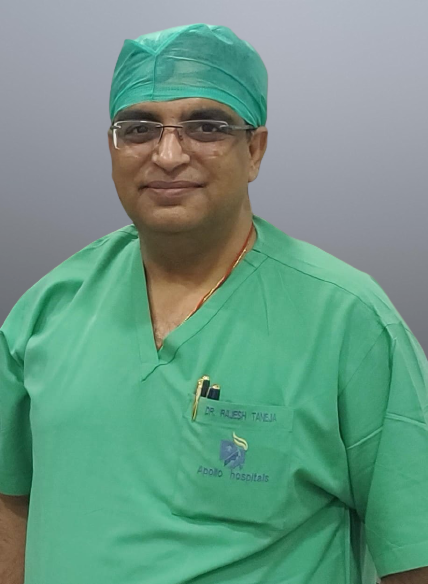Could not find what you are looking for?
- Treatments & Procedures
- Gender Affirmation Surgery - Types, Procedure, Cost In India, Risks, Recovery and Benefits
Gender Affirmation Surgery - Types, Procedure, Cost in India, Risks, Recovery and benefits
What is Gender Affirmation Surgery?
Gender Affirmation Surgery (GAS), often referred to as gender confirmation surgery or sex reassignment surgery, is a medical procedure designed to align an individual's physical characteristics with their gender identity. This surgical intervention is a critical component of the transition process for many transgender and non-binary individuals. The primary purpose of Gender Affirmation Surgery is to alleviate gender dysphoria, a condition where a person experiences significant discomfort or distress due to a mismatch between their assigned sex at birth and their gender identity.
The procedure encompasses a range of surgical techniques that can modify primary and secondary sexual characteristics. For transgender women (assigned male at birth but identifying as female), this may include breast augmentation, vaginoplasty, and facial feminisation surgery. For transgender men (assigned female at birth but identifying as male), procedures may include chest masculinisation (top surgery), phalloplasty, and metoidioplasty. Each of these surgeries aims to create a body that reflects the individual's gender identity, thereby improving their overall quality of life and mental well-being.
Gender Affirmation Surgery is not merely cosmetic; it is a medically recognisd treatment for gender dysphoria. The World Professional Association for Transgender Health (WPATH) provides guidelines that outline the necessary steps and considerations for individuals seeking these procedures. These guidelines emphasise the importance of mental health support, informed consent, and a thorough understanding of the risks and benefits associated with surgery.
Why is Gender Affirmation Surgery Done?
The decision to undergo Gender Affirmation Surgery is deeply personal and often stems from a long-standing experience of gender dysphoria. Individuals may experience a range of symptoms, including anxiety, depression, and social withdrawal, as they struggle with the incongruence between their gender identity and their physical appearance. For many, these feelings can be debilitating, impacting their ability to function in daily life, maintain relationships, and pursue personal and professional goals.
Gender Affirmation Surgery is typically recommended when non-surgical interventions, such as hormone therapy and counseling, have not sufficiently alleviated these symptoms. Hormone therapy can help develop secondary sexual characteristics, such as breast growth in transgender women or facial hair in transgender men, but it may not address all aspects of gender dysphoria. Surgery can provide a more definitive solution by altering the body in a way that aligns with the individual's gender identity.
The timing of the surgery is also crucial. Healthcare providers often recommend that individuals undergo a thorough evaluation, including psychological assessments, to ensure they are ready for the physical and emotional changes that accompany surgery. This evaluation process helps to confirm that the individual has a persistent and well-documented history of gender dysphoria, which is essential for qualifying for surgery.
Indications for Gender Affirmation Surgery
Several clinical indications can make a patient a candidate for Gender Affirmation Surgery. These indications are typically assessed through a combination of psychological evaluations, medical history, and physical examinations. The following criteria are commonly considered:
- Persistent Gender Dysphoria: Candidates must demonstrate a long-standing and consistent experience of gender dysphoria. This may involve a documented history of distress related to their assigned sex at birth and a strong desire to transition to their affirmed gender.
- Age Requirements: Most surgical guidelines recommend that candidates be at least 18 years old, although some procedures may be available to younger individuals with parental consent and appropriate psychological support. Age requirements can vary based on the type of surgery and the healthcare provider's protocols.
- Mental Health Evaluation: A comprehensive mental health assessment is essential to ensure that candidates are psychologically prepared for the surgery. This evaluation typically includes discussions about the individual's gender identity, their understanding of the surgical process, and any potential risks and benefits.
- Hormone Therapy: Depending on the type of surgery and individual goals, hormone therapy may or may not be required. The decision is guided by evolving best practices and shared decision-making. This helps to develop secondary sexual characteristics and can provide insight into the individual's commitment to their transition.
- Informed Consent: Candidates must demonstrate an understanding of the surgical procedure, including the potential risks, complications, and expected outcomes. Informed consent is a critical component of the process, ensuring that individuals are making educated decisions about their bodies.
- Support System: A strong support system, including family, friends, and mental health professionals, can significantly impact the success of the surgery and the recovery process. Candidates are often encouraged to engage with support groups or counseling services to help navigate the emotional aspects of their transition.
Types of Gender Affirmation Surgery
Gender Affirmation Surgery encompasses a variety of procedures tailored to meet the specific needs of individuals based on their gender identity. While the types of surgeries can vary widely, they generally fall into two main categories: surgeries for transgender women and surgeries for transgender men.
- For Transgender Women:
- Vaginoplasty: This procedure involves the creation of a neovagina, allowing transgender women to have a functional and aesthetically pleasing vaginal canal. The surgery typically involves the removal of the penis and the construction of the vagina using existing tissue.
- Breast Augmentation: Many transgender women opt for breast augmentation to achieve a more feminine chest contour. This procedure can involve the placement of implants or the use of fat grafting techniques.
- Facial Feminisation Surgery (FFS): FFS includes a range of procedures aimed at softening masculine facial features. Common techniques include brow lifts, rhinoplasty, and jaw contouring.
- For Transgender Men:
- Chest Masculinisation (Top Surgery): This surgery involves the removal of breast tissue to create a flatter, more masculine chest. Techniques can vary, including double incision or keyhole methods, depending on the individual's body type and desired outcome.
- Phalloplasty: This complex procedure involves the construction of a neophallus using tissue from other parts of the body. Phalloplasty can also include the creation of a urethra for urination and may involve additional surgeries for erectile function.
- Metoidioplasty: This procedure utilises existing genital tissue to create a neophallus, allowing for a more natural appearance and function. It is often less invasive than phalloplasty and can be performed in conjunction with other surgeries.
Each type of Gender Affirmation Surgery is designed to address specific aspects of gender dysphoria and to help individuals achieve their desired physical appearance. The choice of procedure is highly individualised and should be made in consultation with qualified healthcare professionals who specialise in transgender health.
In conclusion, Gender Affirmation Surgery is a vital aspect of the transition process for many individuals experiencing gender dysphoria. Understanding the purpose, indications, and types of surgeries available can empower individuals to make informed decisions about their bodies and their journeys toward living authentically. As societal acceptance of transgender individuals continues to grow, so too does the importance of accessible and comprehensive healthcare options, including Gender Affirmation Surgery.
Contraindications for Gender Affirmation Surgery
While gender affirmation surgery (GAS) can be a life-changing procedure for many individuals, it is not suitable for everyone. Certain conditions or factors may make a patient unsuitable for surgery. Understanding these contraindications is crucial for ensuring the safety and well-being of the patient.
- Medical Conditions: Patients with certain medical conditions may be advised against undergoing gender affirmation surgery. These can include uncontrolled diabetes, severe cardiovascular disease, or other chronic illnesses that could complicate the surgical process or recovery. A thorough medical evaluation is essential to assess overall health.
- Mental Health Considerations: Mental health plays a significant role in the decision to undergo gender affirmation surgery. Patients with untreated mental health disorders, such as severe depression or anxiety, may not be suitable candidates until these conditions are managed. A mental health evaluation is often required to ensure that the patient is psychologically prepared for the surgery and its implications.
- Substance Abuse: Active substance abuse can pose significant risks during and after surgery. Patients who are currently using drugs or alcohol may be advised to seek treatment and achieve sobriety before considering gender affirmation surgery. This helps ensure a safer surgical experience and better recovery outcomes.
- Lack of Support: A strong support system is vital for anyone undergoing major surgery. Patients who lack emotional or practical support from family, friends, or community may be advised to seek counseling or support groups before proceeding. This support can help with the emotional and physical recovery process.
- Age Restrictions: Many surgical centers have age restrictions for gender affirmation surgery. Typically, patients must be at least 18 years old, although some may allow younger patients to undergo surgery with parental consent and thorough psychological evaluation.
- Informed Consent: Patients must demonstrate an understanding of the procedure, its risks, and its potential outcomes. If a patient is unable to provide informed consent due to cognitive impairments or other reasons, they may not be suitable candidates for surgery.
- Unrealistic Expectations: Patients who have unrealistic expectations about the outcomes of gender affirmation surgery may be advised against the procedure. It is essential for patients to have a clear understanding of what the surgery can and cannot achieve, as well as the potential for complications.
How to Prepare for Gender Affirmation Surgery
Preparing for gender affirmation surgery involves several important steps to ensure a smooth process and optimal outcomes. Here’s a guide on how to prepare effectively:
- Consultation with Healthcare Providers: The first step is to schedule a consultation with a qualified surgeon who specialises in gender affirmation surgery. During this appointment, the surgeon will discuss the procedure, assess your health, and answer any questions you may have.
- Medical Evaluation: A comprehensive medical evaluation will be conducted, including blood tests, imaging studies, and a review of your medical history. This evaluation helps identify any underlying health issues that need to be addressed before surgery.
- Mental Health Assessment: A mental health evaluation is often required to ensure that you are psychologically prepared for the surgery. This may involve meeting with a psychologist or psychiatrist who specialises in gender identity issues.
- Fertility Preservation: Fertility preservation should be discussed before starting hormone therapy or undergoing surgery, as some procedures can result in permanent infertility. Options include sperm, egg, or embryo preservation.
- Preoperative Instructions: Your surgeon will provide specific preoperative instructions, which may include:
- Avoiding certain medications, such as blood thinners, for a specified period before surgery.
- Stopping smoking and alcohol consumption to promote better healing.
- Following a specific diet or fasting instructions prior to the procedure.
- Arranging Support: It’s important to have a support system in place for the day of the surgery and during recovery. Arrange for a friend or family member to accompany you to the hospital and help you at home during the initial recovery period.
- Planning for Recovery: Prepare your home for recovery by ensuring you have a comfortable space to rest. Stock up on necessary supplies, such as medications, bandages, and easy-to-prepare meals. Consider any modifications you may need to make to your living space to accommodate your recovery.
- Understanding the Procedure: Take the time to educate yourself about the specific type of gender affirmation surgery you will be undergoing. Understanding the steps involved can help alleviate anxiety and prepare you mentally for the experience.
- Postoperative Care Plan: Discuss your postoperative care plan with your surgeon. This includes follow-up appointments, wound care instructions, and signs of complications to watch for during recovery.
Gender Affirmation Surgery: Step-by-Step Procedure
Understanding the step-by-step process of gender affirmation surgery can help demystify the experience and prepare you for what to expect. Here’s a breakdown of the procedure:
- Preoperative Preparation: On the day of surgery, you will arrive at the surgical facility. You will check in and complete any necessary paperwork. A nurse will take your vital signs and prepare you for the procedure. You may be given a sedative to help you relax.
- Anaesthesia: Once you are in the operating room, an anaesthesiologist will administer anaesthesia. This may be general anaesthesia, which means you will be completely unconscious during the surgery, or regional anaesthesia, which numbs only a specific area of your body.
- Surgical Procedure: The specific steps of the surgery will depend on the type of gender affirmation surgery you are undergoing. For example:
- Male-to-Female (MTF) Surgery: This may involve vaginoplasty, which includes the creation of a neovagina, and may also include breast augmentation and facial feminisation procedures.
- Female-to-Male (FTM) Surgery: This may involve phalloplasty or metoidioplasty, which includes the construction of a neophallus, and may also include chest masculinistion surgery.
- Monitoring During Surgery: Throughout the procedure, the surgical team will monitor your vital signs and ensure that everything is proceeding as planned. The duration of the surgery can vary, typically lasting several hours.
- Postoperative Recovery: After the surgery is complete, you will be moved to a recovery area where medical staff will monitor you as you wake up from anaesthesia. You may experience grogginess and discomfort, which is normal.
- Hospital Stay: Depending on the type of surgery and your individual recovery, you may need to stay in the hospital for a few days. During this time, healthcare providers will manage your pain and monitor your healing.
- Discharge Instructions: Once you are stable and ready to go home, your healthcare team will provide you with discharge instructions. This will include information on how to care for your surgical site, medications to take, and signs of complications to watch for.
- Follow-Up Appointments: After surgery, you will have follow-up appointments with your surgeon to monitor your recovery and address any concerns. It’s important to attend these appointments to ensure proper healing.
Risks and Complications of Gender Affirmation Surgery
Like any surgical procedure, gender affirmation surgery carries certain risks and potential complications. While many patients experience positive outcomes, it’s important to be aware of both common and rare risks associated with the surgery.
- Common Risks:
- Infection: As with any surgery, there is a risk of infection at the surgical site. Proper wound care and hygiene can help minimise this risk.
- Bleeding: Some bleeding is expected during surgery, but excessive bleeding may require additional medical intervention.
- Scarring: Surgical incisions will leave scars, which may fade over time but can vary in appearance based on individual healing.
- Pain and Discomfort: Postoperative pain is common and can usually be managed with prescribed pain medications.
- Specific Risks by Procedure:
- MTF Surgery: Risks may include vaginal stenosis (narrowing of the neovagina), urinary complications, and dissatisfaction with cosmetic results.
- FTM Surgery: Risks may include complications related to the construction of the neophallus, such as urethral stricture or issues with erectile function.
- Rare Risks:
- Anaesthesia Complications: Although rare, complications from anaesthesia can occur, including allergic reactions or respiratory issues.
- Thromboembolism: There is a small risk of blood clots forming in the legs or lungs, which can be life-threatening if not addressed promptly.
- Psychological Impact: Some individuals may experience emotional challenges post-surgery, including feelings of regret or dissatisfaction. Ongoing mental health support can be beneficial.
- Long-Term Considerations:
- Patients should be aware that some complications may not arise until long after the surgery, such as changes in sensation or the need for revision surgeries.
In conclusion, gender affirmation surgery is a significant step for many individuals on their journey toward aligning their physical bodies with their gender identity. Understanding contraindications, preparation steps, the surgical process, and potential risks can empower patients to make informed decisions and approach their surgery with confidence. Always consult with qualified healthcare professionals to ensure the best possible outcomes.
Recovery After Gender Affirmation Surgery
Recovery from gender affirmation surgery is a crucial phase that requires careful attention to post-operative care. The timeline for recovery can vary depending on the type of surgery performed, individual health factors, and adherence to aftercare instructions. Generally, patients can expect the following recovery timeline:
Immediate Post-Operative Period (Days 1-3):
During the first few days after surgery, patients will typically stay in the hospital for monitoring. Pain management is a priority, and medications will be prescribed to help manage discomfort. Patients may experience swelling, bruising, and fatigue. It’s essential to rest and avoid any strenuous activities during this time.
First Week (Days 4-7):
After discharge, patients should continue to rest and gradually increase their activity level. Light walking is encouraged to promote circulation, but heavy lifting or vigorous exercise should be avoided. Your healthcare provider will schedule follow-up appointments to monitor healing and address any concerns.
Weeks 2-4:
By the second week, many patients start to feel more like themselves. Swelling and bruising will begin to subside, and most individuals can return to light work or daily activities. However, it’s crucial to follow the surgeon's guidelines regarding physical activity and any restrictions on movement.
Weeks 4-6:
At this stage, many patients can resume normal activities, including work and social engagements. However, high-impact activities or sports should still be avoided until cleared by the surgeon. Continued follow-up appointments will help ensure that healing is progressing as expected.
Aftercare Tips:
- Wound Care: Keep the surgical area clean and dry. Follow specific instructions regarding dressing changes and bathing.
- Pain Management: Take prescribed pain medications as directed. Over-the-counter pain relievers may also be recommended.
- Hydration and Nutrition: Stay hydrated and maintain a balanced diet to support healing. Foods rich in protein, vitamins, and minerals can aid recovery.
- Avoid Smoking and Alcohol: These substances can impede healing and increase the risk of complications.
- Emotional Support: Recovery can be emotionally taxing. Seek support from friends, family, or mental health professionals if needed.
Benefits of Gender Affirmation Surgery
Gender affirmation surgery offers numerous benefits that significantly enhance the quality of life for many individuals. Here are some key health improvements and outcomes associated with the procedure:
- Improved Mental Health: Many patients report a significant reduction in anxiety, depression, and gender dysphoria after surgery. The alignment of physical appearance with gender identity can lead to increased self-esteem and overall well-being.
- Enhanced Quality of Life: Gender affirmation surgery can improve social interactions and relationships. Patients often feel more comfortable in their bodies, leading to a more fulfilling life experience.
- Physical Comfort: For many, the physical changes brought about by surgery alleviate discomfort associated with gender dysphoria. This can include relief from physical dysphoria and improved body image.
- Increased Social Acceptance: Many individuals find that undergoing gender affirmation surgery helps them gain acceptance in their communities and social circles, leading to a more supportive environment.
- Long-Term Health Benefits: Studies have shown that individuals who undergo gender affirmation surgery often experience long-term health benefits, including lower rates of substance abuse and suicidal ideation.
Cost of Gender Affirmation Surgery in India
The cost of gender affirmation surgery in India typically ranges from ₹1,50,000 to ₹5,00,000. This range can vary based on the specific procedure, the surgeon's expertise, and the facility used.
Price can vary based on several key factors:
-
Hospital: Different hospitals have varying pricing structures. Renowned institutions like Apollo Hospitals may offer comprehensive care and advanced facilities, which can influence the overall cost.
-
Location: The city and region where the Gender Affirmation Surgery is performed can affect costs due to differences in living expenses and healthcare pricing.
-
Room Type: The choice of accommodation (general ward, semi-private, private, etc.) can significantly impact the total cost.
-
Complications: Any complications during or after the procedure can lead to additional expenses.
At Apollo Hospitals, we prioritize transparent communication and personalized care plans. Apollo Hospitals is the best hospital for Gender Affirmation Surgery in India because of our trusted expertise, advanced infrastructure, and consistent focus on patient outcomes. We encourage prospective patients seeking a Gender Affirmation Surgery in India to contact us directly for detailed information about the procedure cost and assistance with financial planning.
With Apollo Hospitals, you get access to:
-
Trusted medical expertise
-
Comprehensive aftercare services
-
Excellent value and quality care
This makes Apollo Hospitals a preferred choice for Gender Affirmation Surgery in India.
FAQs About Gender Affirmation Surgery
-
What should I eat before surgery?
Before surgery, focus on a balanced diet rich in fruits, vegetables, lean proteins, and whole grains. Avoid heavy meals and alcohol 24 hours before the procedure. Staying hydrated is also essential. Follow any specific dietary instructions provided by your surgeon. -
Can I take my regular medications before surgery?
Consult your surgeon about your regular medications. Some medications, especially blood thinners, may need to be paused before surgery. Always follow your surgeon's advice regarding medication management. -
How long will I be in the hospital?
The length of hospital stay varies by procedure but typically ranges from one to three days. Your surgeon will provide specific guidance based on your individual case and recovery progress. -
What should I do if I experience severe pain after surgery?
If you experience severe pain that is not relieved by prescribed medications, contact your healthcare provider immediately. It’s essential to address any concerns promptly to prevent complications. -
When can I return to work?
Most patients can return to light work within two to four weeks, depending on the type of surgery and individual recovery. Consult your surgeon for personalised advice based on your job and recovery progress. -
Are there any dietary restrictions after surgery?
After surgery, focus on a nutrient-rich diet to support healing. Avoid alcohol and limit processed foods. Your surgeon may provide specific dietary guidelines based on your procedure. -
How can I manage emotional changes during recovery?
Emotional changes are common during recovery. Consider seeking support from friends, family, or mental health professionals. Engaging in relaxation techniques, such as meditation or gentle exercise, can also help. -
What signs of infection should I look for?
Watch for increased redness, swelling, warmth, or discharge at the surgical site, as well as fever or chills. If you notice any of these symptoms, contact your healthcare provider immediately. -
Can I drive after surgery?
Driving is generally not recommended for at least a week after surgery or until you are no longer taking pain medications that could impair your ability to drive. Always consult your surgeon for specific guidance. -
What if I have a pre-existing condition?
If you have a pre-existing condition, discuss it with your surgeon during your consultation. They will assess your health and may recommend additional precautions or adjustments to your surgical plan. -
Is physical therapy necessary after surgery?
Physical therapy may be recommended depending on the type of surgery and your recovery progress. Your surgeon will provide guidance on whether therapy is necessary for your situation. -
How long will I need to avoid sexual activity?
Most surgeons recommend avoiding sexual activity for at least six to eight weeks post-surgery. This allows time for healing and reduces the risk of complications. Always follow your surgeon's specific recommendations. -
What should I do if I have concerns about my recovery?
If you have any concerns about your recovery, don’t hesitate to reach out to your healthcare provider. It’s essential to address any issues early to ensure a smooth recovery process. -
Can I have children after gender affirmation surgery?
Fertility may be affected by certain surgeries, especially those involving hormone therapy. If you plan to have children in the future, discuss fertility preservation options with your healthcare provider before surgery. -
What is the best way to care for my surgical site?
Keep the surgical site clean and dry. Follow your surgeon's instructions for dressing changes and bathing. Avoid soaking in baths or swimming until cleared by your surgeon. -
How can I prepare my home for recovery?
Prepare your home by creating a comfortable recovery space with easy access to necessities. Stock up on healthy foods, medications, and any supplies recommended by your surgeon. -
Will I need someone to help me after surgery?
It’s advisable to have someone assist you for at least the first few days post-surgery. They can help with daily tasks, transportation, and provide emotional support during recovery. -
What if I experience mood swings after surgery?
Mood swings can be a normal part of recovery due to hormonal changes and emotional adjustments. If these feelings persist or worsen, consider speaking with a mental health professional for support. -
How can I stay active during recovery?
Engage in light activities such as walking or gentle stretching as advised by your surgeon. Avoid high-impact exercises until you receive clearance. Staying active can help improve circulation and mood. -
When will I see the final results of my surgery?
Final results can take several months to a year to fully manifest as swelling subsides and healing progresses. Follow-up appointments will help monitor your recovery and assess the results.
Conclusion
Gender affirmation surgery is a significant step for many individuals seeking to align their physical bodies with their gender identity. The benefits of this procedure extend beyond physical changes, impacting mental health and overall quality of life. If you are considering gender affirmation surgery, it is essential to consult with a qualified medical professional who can guide you through the process and address any concerns. Your journey towards self-affirmation and well-being is important, and the right support can make all the difference.














